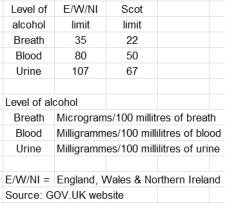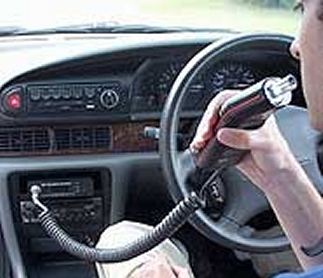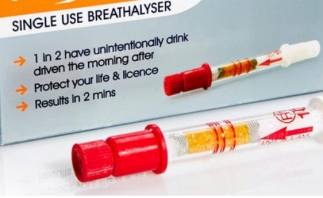New
EU rule - cars with breathalyser interface and speed limiters by 2022
These measures are for new cars and it appears it cannot possibly
be the intention that existing cars on the roads today should have
these technologies retro-fitted as that would be impossibly difficult
and expensive. So on that basis there are no concerns for the classic
car owners. Possibly older cars will become more popular simply because
they do not have the breathalysers and speed limiters fitted with
the consequent associated restraints they would impose.
UK drink-drive limits
There are strict alcohol limits for drivers, but it’s impossible
to say exactly how many drinks they equal - it’s different for
each person. The
limits in Scotland are different to those in the rest of the UK.

The way alcohol affects you depends on:
> your
weight, age, sex and metabolism (the rate your body uses energy).
> the type and amount of alcohol.
> what you’ve eaten recently.
> your stress levels at the time.
Update
A longstanding V8 Register member, Maurits Clement, in the Netherlands
has been in touch saying reporting "a new EU regulation says
that all new cars must have integrated breathalyser and speed-limiters
by 2022" sounded a bit extreme for me. The regulation is that
any new vehicle should have an interface so the car is ready for the
installation of an alcohol interlock. Such an installation is often
ordered by a judge in the case of a conviction for driving under influence.
The required interface makes such an installation a 'plug and play'
exercise.
So it turns out this measure is less drastic than now described on
the website". Our NEWS item has been amended to reflect that
clarification.
Updated: 191127
Posted:
191126 |


Alcohol interlock
device or "alcolock". More

Single Use Breathalyser
from Halfords. More
Information note on the new EU regulation
See our note with extracts from the EU documents, definitions
and other related material. More |
New
cars to have a breathalyser interface and speed limiter by 2022
following the arrival of a new EU rule
Reports of a new EU regulation say all new cars must have
an interface installed which enables the fitment of aftermarket
alcohol interlock devices (integrated breathalysers) and
speed-limiters by 2022 but also existing models sold after
2024 must also have this updated safety technology.
The landmark ruling by the European Council received provisional
approval in March 2019 but has only just been rubber-stamped
by European officials last week. The British Government has
confirmed the standards will apply in the United Kingdom, despite
Brexit. The European Transport Safety Council (ETSC) say it
may cut traffic collisions by 30% and save 25,000 lives across
Europe over the next 15 years.
What are alcohol interlock devices in vehicles?
Typically the systems consist of two parts: an alcohol breathalyser
unit into which the driver provides a breath sample and
an immobiliser that will prevent the vehicle from starting
if the breath sample provided is above the set alcohol limit.
The regulation Such an installation is often ordered by a judge
in case of conviction for driving under influence. The required
interface makes such an installation a 'plug and play' exercise.
In-car breathalysers are common in Australia and the United
States, where they’re known more often as ‘alcohol
interlock devices’, or ‘alcolocks’. Fitted
onto the dashboard, the breathalyser needs a clean breath sample
before the car’s engine will start. If the driver doesn’t
pass the test, they must wait a certain amount of time before
they can re-test.
What are speed limiters?
‘Intelligent Speed Assistance’ (ISA) software stops
drivers from going above speed limits and can slow speeding
vehicles. Other features can detect when a driver is falling
asleep, drifting over lanes or losing concentration. The speed-limiter
software uses GPS data and speed limits from local traffic cameras,
displaying the limits on your car’s dashboard.
Testing for drug use
Will we soon see an in-car systems to test for drugs and monitor
mobile phone use?
Will classic cars be swept into retrofitting these devices?
Our reading of these regulations is we do not think that
it can possibly be the intention that existing cars should have
these technologies retrofitted, that would be impossibly
difficult and expensive. There has in fact only ever been one
instance of compulsory retrofitting in the UK, which was the
very simple matter of fitting reflectors.
What it must mean is that from 2022 all new models introduced
must have these technologies built in, but existing models
can continue to be manufactured and sold without them until
2024, after which all new cars must have them. So on that basis
there are no concerns for the classic car movement at present
– except possibly older cars will become more popular simply
because they would not have to have a breathalyser interface
and speed limiter fitted with the associated EU restraints they
would impose. |
|






